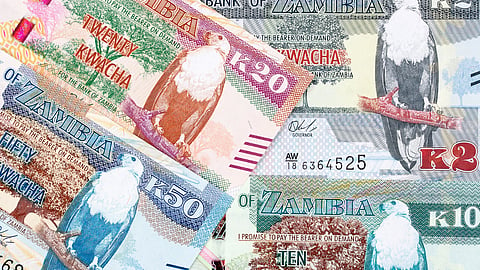Zambia emerges from default with $13.4bn debt deal
Zambia, after 1,300 days of bankruptcy, is set to exit default with a $13.4 billion debt restructuring. Despite praise for global cooperation, criticisms surface over delays and complexities. China's role sparks debate, yet Zambia's success is seen as a victory for international engagement, despite ongoing challenges in debt relief efforts.
Sign up for your early morning brew of the BizNews Insider to keep you up to speed with the content that matters. The newsletter will land in your inbox at 5:30am weekdays. Register here.
By Marc Jones, Libby George and Karin Strohecker
More than three-and-a-half years, or 1,300 days, after resource-rich Zambia formally declared itself bankrupt it is about to drag itself out of default, leaving some hard lessons for richer nations about how their much-vaunted debt relief plan performed.
Tuesday will see its international bondholders vote through their part of a $13.4 billion debt restructuring and make Zambia the first to complete a full-blown rework under the G20-led 'Common Framework' architecture.
Hakainde Hichilema, Zambia's president, has already described it as a historic moment and the head of the International Monetary Fund (IMF), Kristalina Georgieva, has hailed it as a important sign of multilateral cooperation.
But for many involved in the day-to-day work – and repeated delays – it will be more of a weary cheer than a celebratory fist shake.
"It was painful for Zambia – we fully recognise that," William Roos, the co-chair of both the 'Paris Club' of richer Western creditor nations and of Zambia's Official Creditor Committee that included Zambia's biggest lender China, said at a debt conference in Paris on Friday .
"So we have to improve. But we delivered."
The overall restructuring is estimated to cut around $900 million dollars from Zambia's debt and spread its future payments over a much longer time frame.
It has been its role as a Common Framework guinea pig though that has made it prominent.
Launched during COVID-19 in 2020, the Framework was designed to bring all the different lenders to poorer countries under one roof — particularly China whose lending exploded in the decade before the pandemic.
It was regarded as a breakthrough but the extraordinary length of time Zambia's restructuring has taken, as well as others still ongoing in Ghana and Ethiopia, has led to criticism of delays and complexity.
Officials and creditors in all three countries have complained about a lack of transparency.
Spats emerged early on when China called for the big Western-led multilateral development banks to also swallow losses, while in November the official creditor group, led by China and France, temporarily torpedoed a government and IMF-approved agreement with private sector bondholders in the grounds it did not provide enough debt relief.
"The G20 framework… I do not think I want to recommend that to any country," Ghana's central bank governor, Ernest Addison, said at the same event Paris Club co-chair Roos was speaking at, when asked about his country's experiences.
BATTLEGROUND
Zambia's deal will see official sector creditors reschedule $6.3 billion worth of their loans while three of the country's main bonds, worth a combined $3 billion, will be rolled into two with new payment schedules and conditions.
A modest amount of bank and other loans remain to be restructured.
Former IMF General Counsel Sean Hagan and sovereign debt specialist Brad Setser highlight how clauses inserted in the new deals mean Zambia – which is Africa's second largest copper producer – will make extra payments if it recovers fast.
Those additional payments though could push its debt back up to a level where the IMF says it is at high risk of debt distress again though.
Backers of the Common Framework nevertheless insist that its difficulties are being ironed out.
Allison Holland, who heads the IMF's Debt Policy Division, believes lessons learnt in Zambia meant Ghana was able to get from IMF staff level agreement to programme approval far quicker.
She added that official creditors now have a better understanding of each other's concerns and constraints and that the setting up of a Global Sovereign Debt Roundtable means the process can now be continually be improved.
Bondholder committee member Thys Louw at South Africa-based investment firm NinetyOne thinks, however, that the struggles in Zambia were deep rooted and that the idea that restructurings have lots of "common" features is a fallacy.
"We were always optimistic in terms of engagement, but Zambia became essentially the battleground, the collateral damage in the broader themes at play," Louw said, pointing to both the West's hawkishness towards China and the concern initially that a wave of defaults was approaching.
REAL WIN
One of Zambia's legal advisors, Melissa Butler at law firm White & Case, also pointed to how China was singled out for criticism.
"There was a lot of finger pointing (at China) in early days that was somewhat unfair, because there was a learning process going on," Butler said.
"They have demonstrated that they want to engage with the rest of the international community, and in Zambia they delivered. That to me is the real win here".
China's foreign ministry spokesman Wang Wenbin said at a regular briefing on Friday that Beijing's efforts had been "highly appreciated" by all sides and that it would, "continue to coordinate and cooperate with all parties concerned."
Zambia was supposed to have concluded a review of its IMF Extended Credit Facility (ECF) but that process has been delayed by another crisis – the country's worst drought in 40 years – which means it has another $900 million funding gap to cover.
But will getting its restructuring over the line clear the path for the next Common Framework default wherever it crops up?
"It think it could be easier, but do I think it will get less complex? No," White and Case's Butler said.
Read also:
SOURCE: REUTERS

